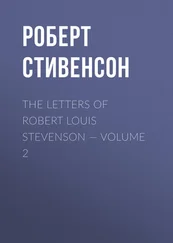Robert Stevenson - The Works of Robert Louis Stevenson – Swanston Edition. Volume 21
Здесь есть возможность читать онлайн «Robert Stevenson - The Works of Robert Louis Stevenson – Swanston Edition. Volume 21» — ознакомительный отрывок электронной книги совершенно бесплатно, а после прочтения отрывка купить полную версию. В некоторых случаях можно слушать аудио, скачать через торрент в формате fb2 и присутствует краткое содержание. Жанр: foreign_prose, на английском языке. Описание произведения, (предисловие) а так же отзывы посетителей доступны на портале библиотеки ЛибКат.
- Название:The Works of Robert Louis Stevenson – Swanston Edition. Volume 21
- Автор:
- Жанр:
- Год:неизвестен
- ISBN:нет данных
- Рейтинг книги:4 / 5. Голосов: 1
-
Избранное:Добавить в избранное
- Отзывы:
-
Ваша оценка:
- 80
- 1
- 2
- 3
- 4
- 5
The Works of Robert Louis Stevenson – Swanston Edition. Volume 21: краткое содержание, описание и аннотация
Предлагаем к чтению аннотацию, описание, краткое содержание или предисловие (зависит от того, что написал сам автор книги «The Works of Robert Louis Stevenson – Swanston Edition. Volume 21»). Если вы не нашли необходимую информацию о книге — напишите в комментариях, мы постараемся отыскать её.
The Works of Robert Louis Stevenson – Swanston Edition. Volume 21 — читать онлайн ознакомительный отрывок
Ниже представлен текст книги, разбитый по страницам. Система сохранения места последней прочитанной страницы, позволяет с удобством читать онлайн бесплатно книгу «The Works of Robert Louis Stevenson – Swanston Edition. Volume 21», без необходимости каждый раз заново искать на чём Вы остановились. Поставьте закладку, и сможете в любой момент перейти на страницу, на которой закончили чтение.
Интервал:
Закладка:
Dick consented. On the way to dinner the Admiral showed him where to buy gloves, and made him buy them; where to buy cigars, and made him buy a vast store, some of which he obligingly accepted. At the restaurant he showed him what to order, with surprising consequences in the bill. What he made that night by his percentages it would be hard to estimate. And all the while Dick smilingly consented, understanding well that he was being done, but taking his losses in the pursuit of character as a hunter sacrifices his dogs. As for the Strange Things, the reader will be relieved to hear that they were no stranger than might have been expected, and he may find things quite as strange without the expense of a Van Tromp for guide. Yet he was a guide of no mean order, who made up for the poverty of what he had to show by a copious, imaginative commentary.
“And such,” said he, with an hiccup, “such is Paris.”
“Pooh!” said Dick, who was tired of the performance.
The Admiral hung an ear, and looked up sidelong with a glimmer of suspicion.
“Good-night,” said Dick; “I’m tired.”
“So English!” cried Van Tromp, clutching him by the hand. “So English! So blasé! Such a charming companion! Let me see you home.”
“Look here,” returned Dick, “I have said good-night, and now I’m going. You’re an amusing old boy; I like you, in a sense; but here’s an end of it for to-night. Not another cigar, not another grog, not another percentage out of me.”
“I beg your pardon!” cried the Admiral with dignity.
“Tut, man!” said Dick; “you’re not offended; you’re a man of the world, I thought. I’ve been studying you, and it’s over. Have I not paid for the lesson? Au revoir. ”
Van Tromp laughed gaily, shook hands up to the elbows, hoped cordially they would meet again and that often, but looked after Dick as he departed with a tremor of indignation. After that they two not unfrequently fell in each other’s way, and Dick would often treat the old boy to breakfast on a moderate scale and in a restaurant of his own selection. Often, too, he would lend Van Tromp the matter of a pound, in view of that gentleman’s contemplated departure for Australia; there would be a scene of farewell almost touching in character, and a week or a month later they would meet on the same boulevard without surprise or embarrassment. And in the meantime Dick learned more about his acquaintance on all sides: heard of his yacht, his chaise and four, his brief season of celebrity amid a more confiding population, his daughter, of whom he loved to whimper in his cups, his sponging, parasitical, nameless way of life; and with each new detail something that was not merely interest nor yet altogether affection grew up in his mind towards this disreputable stepson of the arts. Ere he left Paris Van Tromp was one of those whom he entertained to a farewell supper; and the old gentleman made the speech of the evening, and then fell below the table, weeping, smiling, paralysed.
CHAPTER II
A LETTER TO THE PAPERS
Old Mr. Naseby had the sturdy, untutored nature of the upper middle class. The universe seemed plain to him. “The thing’s right,” he would say, or “the thing’s wrong”; and there was an end of it. There was a contained, prophetic energy in his utterances, even on the slightest affairs; he saw the damned thing; if you did not, it must be from perversity of will, and this sent the blood to his head. Apart from this, which made him an exacting companion, he was one of the most upright, hot-tempered old gentlemen in England. Florid, with white hair, the face of an old Jupiter, and the figure of an old fox-hunter, he enlivened the vale of Thyme from end to end on his big, cantering chestnut.
He had a hearty respect for Dick as a lad of parts. Dick had a respect for his father as the best of men, tempered by the politic revolt of a youth who has to see to his own independence. Whenever the pair argued, they came to an open rupture; and arguments were frequent, for they were both positive, and both loved the work of the intelligence. It was a treat to hear Mr. Naseby defending the Church of England in a volley of oaths, or supporting ascetic morals with an enthusiasm not entirely innocent of port wine. Dick used to wax indignant, and none the less so because, as his father was a skilful disputant, he found himself not seldom in the wrong. On these occasions, he would redouble in energy, and declare that black was white, and blue yellow, with much conviction and heat of manner; but in the morning such a licence of debate weighed upon him like a crime, and he would seek out his father, where he walked before breakfast on a terrace overlooking all the vale of Thyme.
“I have to apologise, sir, for last night – ” he would begin.
“Of course you have,” the old gentleman would cut in cheerfully. “You spoke like a fool. Say no more about it.”
“You do not understand me, sir. I refer to a particular point. I confess there is much force in your argument from the doctrine of possibilities.”
“Of course there is,” returned his father. “Come down and look at the stables. Only,” he would add, “bear this in mind, and do remember that a man of my age and experience knows more about what he is saying than a raw boy.”
He would utter the word “boy” even more offensively than the average of fathers, and the light way in which he accepted these apologies cut Dick to the heart. The latter drew slighting comparisons, and remembered that he was the only one who ever apologised. This gave him a high station in his own esteem, and thus contributed indirectly to his better behaviour; for he was scrupulous as well as high-spirited, and prided himself on nothing more than on a just submission.
So things went on until the famous occasion when Mr. Naseby, becoming engrossed in securing the election of a sound party candidate to Parliament, wrote a flaming letter to the papers. The letter had about every demerit of party letters in general: it was expressed with the energy of a believer; it was personal; it was a little more than half unfair, and about a quarter untrue. The old man did not mean to say what was untrue, you may be sure; but he had rashly picked up gossip, as his prejudice suggested, and now rashly launched it on the public with the sanction of his name.
“The Liberal candidate,” he concluded, “is thus a public turncoat. Is that the sort of man we want? He has been given the lie, and has swallowed the insult. Is that the sort of man we want? I answer, No! With all the force of my conviction, I answer, No !”
And then he signed and dated the letter with an amateur’s pride, and looked to be famous by the morrow.
Dick, who had heard nothing of the matter, was up first on that inauspicious day, and took the journal to an arbour in the garden. He found his father’s manifesto in one column; and in another a leading article. ”No one that we are aware of,“ ran the article, ”had consulted Mr. Naseby on the subject, but if he had been appealed to by the whole body of electors, his letter would be none the less ungenerous and unjust to Mr. Dalton. We do not choose to give the lie to Mr. Naseby, for we are too well aware of the consequences; but we shall venture instead to print the facts of both cases referred to by this red-hot partisan in another portion of our issue. Mr. Naseby is of course a large proprietor in our neighbourhood; but fidelity to facts, decent feeling, and English grammar, are all of them qualities more important than the possession of land. Mr. N – is doubtless a great man; in his large gardens and that half-mile of greenhouses, where he has probably ripened his intellect and temper, he may say what he will to his hired vassals, but (as the Scots say) —
Читать дальшеИнтервал:
Закладка:
Похожие книги на «The Works of Robert Louis Stevenson – Swanston Edition. Volume 21»
Представляем Вашему вниманию похожие книги на «The Works of Robert Louis Stevenson – Swanston Edition. Volume 21» списком для выбора. Мы отобрали схожую по названию и смыслу литературу в надежде предоставить читателям больше вариантов отыскать новые, интересные, ещё непрочитанные произведения.
Обсуждение, отзывы о книге «The Works of Robert Louis Stevenson – Swanston Edition. Volume 21» и просто собственные мнения читателей. Оставьте ваши комментарии, напишите, что Вы думаете о произведении, его смысле или главных героях. Укажите что конкретно понравилось, а что нет, и почему Вы так считаете.










